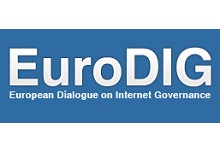Bridging the urban-rural digital gap: A commercial or community effort?
6 Jun 2018 02:00h
Event report
The plenary session opened with a presentation of the Tusheti development project introduced by Mr Rati Kochlamazashvili (Executive Director of Tusheti Development Fund). The goal of the project was to provide Internet access to Tusheti, a remote northeastern region in Georgia.
The implementation involved a range of stakeholders, from governmental agencies to the local community, Internet services providers (ISPs) and international investors, thus proving the viability of a multistakeholder approach for the development issues.
Ms Mercy Tembon (Regional Director for the South Caucasus, Europe and Central Asia, The World Bank) praised the Georgian government on its successful efforts in digital development. She went on to highlight the main areas in which the World Bank is partnering with the government of Georgia, theprivate sector,and civil society in supporting the expansion of broadband Internet. First, with the supportthey offer the government in defining a new national broadband development strategy to create theachievable targets and competitive market that will deliver wider coverage and more affordable prices to more Georgians. Second, with thefinancingof the Geni projecta programme which will complement and build on the examples like Tusheti, through the Georgian national innovation ecosystem. Third,withbuildingpotential partnerships which catalyse private investments to promote the emerging and independent operators of shared infrastructure, for example, data centres and telecom towers.
Mr Giorgi Cherkezishvili (Deputy Ministerof Economy and Sustainable Development of Georgia) talked about governmental efforts: In 2016, they started the development of the broadband infrastructure in the country and established a dedicated agency for the rural areas with a lower population rate (less than 200 people per territory), something that is not commercially viable and is of no interest to the private sector. He stressed that ‘it’s important for the government to support, to promote and to create a demand to give a chance to all members of the society’.
Mr Michal Boni (Member of European Parliament) focused on the importance of building a new digital literacy for overcoming the digital gap. The youth, as well as the elderly, need to be ready, equipped with digital skills, for new workplaces. Moreover, he pointed out that it is necessary to show to people the new digital public services, such as healthcare, and the opportunities that the Internet and new information and communications technology (ICT) tools bring for small and medium sized enterprises (SMEs). These will contribute to creating a demand for the access too.
Mr Raúl Echeberría (Vice President Global Engagement, Internet Society) noted that there is a huge gap in the opportunities enjoyed by people that are already connected, and those that are not yet connected, and that the world is working under the assumption that everyone is connected.‘We need to find a complementary strategy for connecting the people, and the community network approach is just one of those things that we can do’. It is not enough to just connect wires to the rural villages. He said that we need to work together with the people in those villages to find in what ways they can take advantage of this technology to improve their lives. Finally, Echeberria said that the regulatory and legal frameworks should be catalysers, not obstacles, for the development of access.
Ms Marta Capelo Gaspar (Director of Public Policy, European Telecommunications Network Operators) talked about the scarce resources for investing in development projects. ’We need to see that the revenue of the telecom companies is a good thing because of the increasing competition. But then, because of lots of regulations their capacity to invest has gone down. And the resources of public states are also not unlimited. So, we really need to see how we can increase the reach of the traditional investors as well.’ In the end, she distinguished three main points to boost the investments from telecom operators – technology neutrality, promotion of all investments models, and a administrative cost reduction for all.
Mr Melle Tiel Groenestege (Digital Policy Advisor, VEON) acknowledged that his company could have done more concerning the connectivity issue, and that they should learn how to expand their small pilot projects to a global operational level. He talked about his experience with companies partnering to provide connectivity in rural areas of Italy, reducing the final cost of Internet connection, thus making the access sustainable for the local population.
Related topics
Related event

